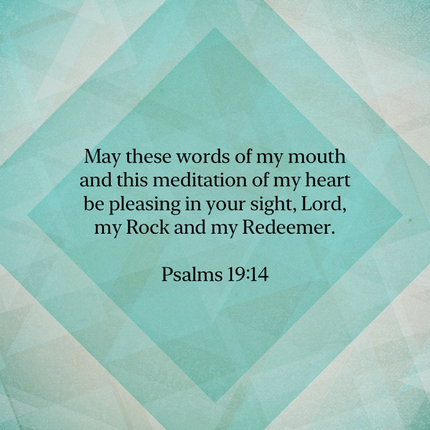|
Good morning!
We're so glad you decided to join us today!
When we meet together in person, we take time to share our joys and concerns. Consider your last week, and any prayer requests you might have. If you would like, you can share prayer requests as a comment on this post. When you are ready, use the prayer below (source) to get started.
God of all nations, please break down the barriers that divide us and that blunt the wonderful message of your grace. Pour out your Spirit upon us and convict us of our prejudice and selfishness, and replace it with your transcending love. Forgive us, forgive me, when my own shortsightedness and selfishness interferes with the world seeing a united Church proclaiming Jesus as Lord and Savior. In Jesus’ name I pray. Amen.
Today's lesson is on Acts 2:1-8, 14-24, 37-40.
Lesson Context
The work of the Holy Spirit can be peaceful, like the descent of the Spirit on Jesus at his baptism (Luke 3:22). However, it is not always pleasant for those affected. We are told Jesus would baptize with both the Holy Spirit and fire (Luke 3:16). We might think of the destruction of God's enemies, and the testing or purification of his people. The Jewish holiday called the Festival of Harvest, the Festival of Weeks, or the day of the firstfruits is celebrated fifty days after Passover. Our Pentecost celebration occurs at roughly the same time -- seven weeks and one day after the Passover Sabbath. For the Jewish people at the time of Christ, both Passover and the Festival of Weeks were pilgrimage festivals. The people would come to Jerusalem and to the temple. Our book says that we might think of Jerusalem as having a tourist economy. The height of the tourist season would be from Passover to Pentecost. Many visitors would stay for the entire fifty day period between those two observances.
The Spirit Comes
The apostles had been instructed to wait in Jerusalem by Jesus. Initially, this would have been the original 11 apostles, but the number of followers grew to about 120. It had been ten days since Jesus' departure. However, the people visiting would start leaving the next day, at the end of the festival. Our book also says that the followers would soon be scattered due to persecution. The followers experienced the sound of a violent wind. Our book points out that this does not mean that there was actually wind. The followers then saw tongues of fire that divided and settled on the followers. There was no burning or injury from the fire. Both the sound and flame were supernatural things from God. Following the sound and flame, the Spirit filled the followers of Jesus. This allowed the followers to be heard in each listener's native language. This was a huge deal! Because the people in Jerusalem were from many different places, they also spoke many different languages. These would have included Greek, Aramaic and Latin, among others. The miracle shown here is that the speakers did not know the other languages. But they were still able to be understood.
The Apostle Preaches
In the verses we skipped, some people doubted, even suggesting that those speaking might be drunk. Peter addresses this idea with the crowd. It is so early in the morning, no one is likely to drunk. Instead, this is what was spoken by the prophet Joel in the Old Testament (Joel 2:28-32). The Jewish people had not experienced prophecy for generations. Our book says that, "We understand this to mean that what remain are the events of the end of time: the return of Christ and the final judgment." Everyone would have known of Jesus of Nazareth as a miracle worker. Peter attributes the miraculous ability to God. The people also would have known about Jesus' death on the cross. However, God's plan did not end there. God had raised Jesus to live again.
The Crowd Reacts
In the next set of skipped verses, Peter offered further proof that Jesus was the Messiah. The people's reaction suggests that they believed what Peter had to say. Peter tells them to repent and be baptized. To repent is to turn away from sin and toward God in heart, mind and lifestyle. Baptism is a work of God, when in God's chosen time, regeneration and renewal happen (see Romans 6:4, Colossians 2:12, Galatians 3:27, Titus 3:5, 1 Peter 3:21, Ephesians 2:8-9). By doing these things, God will forgive us. We will receive the Holy Spirit. Peter says that this will apply to "you and your children and for all who are far off." Initially, the listeners probably thought of this as applying to all of the Jewish people, who were widely spread out in the Roman Empire. Today, we also believe that this applies to the Gentiles as well.
Conclusion
Acts 2 presents something fundamental: the Holy Spirit has come, and it has come with power. The long waiting period is over. There is power in the gospel. When this message is preached faithfully , God's Spirit is active in the reception of it. This is true whether preaching from a pulpit or sharing with a friend. Whenever the gospel is communicated, God's Spirit is working with us to convict the hearer of his truth and bring that person to faith in Christ.
Prayer
God, may we never doubt the power of your Holy Spirit to change everything according to your will. May your Spirit work powerfully in our lives, as Jesus promised. We pray in his name. Amen.
Questions for Discussion
Benediction
This week's benediction comes from the New International Readers' Version.
Next week's lesson will be on Acts 3:1-11.
0 Comments
Leave a Reply. |
AuthorWe are a small, rural Presbyterian church in southwestern Pennsylvania. Archives
July 2024
Categories
All
|



 RSS Feed
RSS Feed